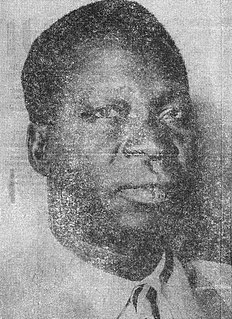
Andrés Rivero Agüero was a Cuban politician who was elected president of Cuba in the Cuban presidential election, 1958.

Elections in Benin take place within the framework of a multi-party democracy and a presidential system. Both the President and the National Assembly are directly elected by voters, with elections organised by the Autonomous National Electoral Commission (CENA).

Bulgaria elects on national level a head of state - the president - and a legislature. The president is elected for a five-year term directly by the people. The National Assembly has 240 members, elected for a four-year term by proportional representation in multi-seat constituencies with a 4% threshold. Bulgaria has a multi-party system, in which no one party often has a chance of gaining power alone, and parties must work with each to form governments.

Parliamentary elections were held in Greece on 16 December 1923. The result was a victory for the Liberal Party, which won 250 of the 398 seats.

The Ghanaian parliamentary election was held on 29 August 1969. This was the first parliamentary election since the 1966 coup by the National Liberation Council which toppled the Nkrumah government, and the first relatively free election in the country's history.
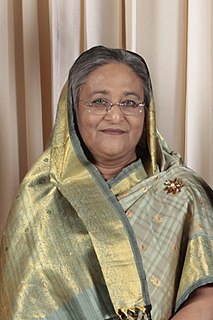
The Seventh National Parliamentary Elections 1996 were held in Bangladesh on 12 June 1996. The result was a victory for the Bangladesh Awami League, which won 146 of the 300 seats, beginning Sheikh Hasina's first-term as Prime Minister. Voter turnout was 75.6%, the highest to date. This election was the second to be held in 1996, following controversial elections held in February a few months earlier.

General elections were held in Brazil on 2 December 1945, the first since the establishment of Getúlio Vargas' Estado Novo. The presidential elections were won by Eurico Gaspar Dutra of the Social Democratic Party (PSD), whilst the PSD also won a majority of seats in both the Chamber of Deputies and the Senate. Voter turnout was 83.1% in the presidential election, 83.5% in the Chamber elections and 76.7% in the Senate elections.

General elections were held in Pakistan on 16 November 1988, electing the 336 members of the National Assembly and 100 members of the Senate. The Pakistan Peoples Party (PPP), led by Benazir Bhutto, beat the technocratic military government of dead General Zia-ul-Haq, winning 94 of the 207 seats in the National Assembly. This was the second of four non-consecutive victories for the PPP and saw Benazir became Pakistan's – and the Muslim world's — first female head of government. Nawaz Sharif took the office of Leader of Opposition

General elections were held in Northern Rhodesia on 20 and 21 January 1964. There were two voter rolls for the Legislative Council, a main roll that elected 65 seats, and a reserved roll that elected 10. Africans elected the main roll, whilst Europeans elected the reserve roll. Other ethnicities were allowed to choose which roll to be part of. The United National Independence Party won the elections, taking 55 of the common roll seats. Its leader, Kenneth Kaunda became Prime Minister, leading the country to independence in October that year, at which point he became President. Voter turnout was 94.8% for the main roll and 74.1% for the reserved roll.

Presidential elections were held in the Democratic Republic of the Congo on 1 November 1970. The only candidate was Joseph Mobutu, who had taken power in a military coup five years earlier. The elections took the format of a "yes" or "no" vote for Mobutu's candidacy, with the results showing he won more "yes" votes than the number of registered voters, even though voting was not compulsory.

Presidential elections were held for the first time in the Central African Republic on 5 January 1964. In December 1963 the Parliament had formally adopted a constitutional amendment that set the presidential term at seven years. The country was a one-party state at the time, with the Movement for the Social Evolution of Black Africa (MESAN) as the sole legal party. Its leader, incumbent President David Dacko, was the only candidate, and won with 99.97% of the vote and a 93.8% turnout.

General elections were held in Togo on 5 May 1963, alongside a constitutional referendum. It followed a military coup earlier in the year which had ousted President Sylvanus Olympio, who had dissolved all political parties except his own Party of Togolese Unity in 1961. Nicolas Grunitzky, who had served as Prime Minister since shortly after the coup was elected President unopposed, whilst in the National Assembly election, a single list of candidates containing members of the Party of Togolese Unity, Juvento, the Democratic Union of the Togolese People and the Togolese People's Movement was put forward under the name "Reconciliation and National Union". It was approved by 98.6% of voters. Voter turnout was 91.1%.

General elections were held in Bolivia on 1 July 1979. As no candidate in the presidential elections received a majority of the vote, the National Congress was required to elect a President. However, the Congress failed to elect a candidate after three ballots, and instead selected Senate leader Wálter Guevara to serve as Interim President for a year on 8 August. Guevara was later overthrown by a military coup led by Alberto Natusch on 31 October. Fresh elections were held in June 1980.

General elections were held in Bolivia on 31 May 1964. Víctor Paz Estenssoro of the Revolutionary Nationalist Movement (MNR) was the only candidate for president, and was re-elected with 98% of the vote. The MNR retained its large majority in Congress.
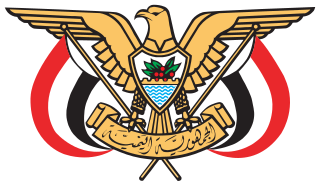
Parliamentary elections were held in the Yemen Arab Republic in February and March 1971. As political parties were banned, all candidates ran as independents.

Presidential elections were held in South Korea on 15 October 1963. They were the first elections since the 1961 May Coup, and the first during the Third Republic. The result was a narrow victory for the acting incumbent and leader of the governing military Supreme Council for National Reconstruction, Park Chung Hee, who won 46.6% of the vote, securing a transition to civilian rule under his Democratic Republican Party. Voter turnout was 85.0%.
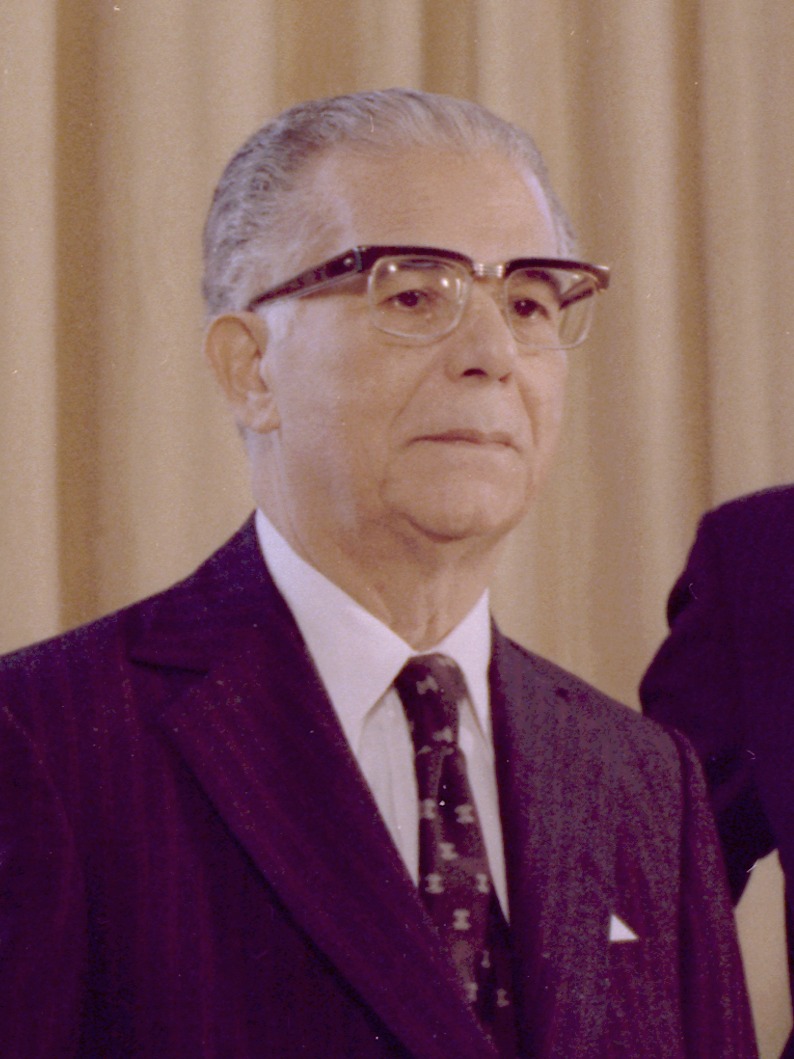
General elections were held in the Dominican Republic on 1 June 1966. Following the 1963 coup which toppled elected president Juan Bosch of the Dominican Revolutionary Party, supporters of his constitutional reforms were excluded from the elections, although Bosch himself contested them. The result was a victory for Joaquín Balaguer of the Reformist Party, whilst his party also won the Congressional elections. Voter turnout was 75.6%.
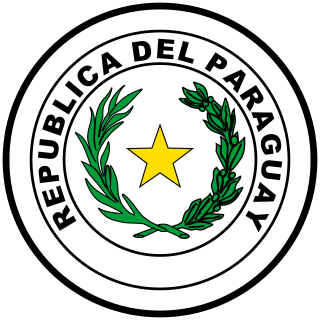
Early general elections were held in Paraguay on 1 May 1989, following a military coup on 3 February which toppled Alfredo Stroessner who had been re-elected the previous year. For the first time in several years, the opposition was allowed to contest the elections more or less unmolested; the Communists were the only party that was banned from taking part.

Parliamentary elections were held in Brazil on 15 November 1966. They were the first held since a military coup in 1964. In 1965, the military government of President Humberto de Alencar Castelo Branco shuttered all existing parties, and enacted a new electoral law that effectively limited the number of parties to two--the pro-government National Renewal Alliance and the opposition Brazilian Democratic Movement.

General elections were held in Peru on 9 June 1963 to elect the President and both houses of the Congress after the results of the 1962 elections were annulled following a military coup. Supported by Popular Action and the Christian Democrat Party, Fernando Belaúnde Terry won the presidential election with 39% of the vote, whilst the Peruvian Aprista Party emerged as the largest party in both houses of Congress.


